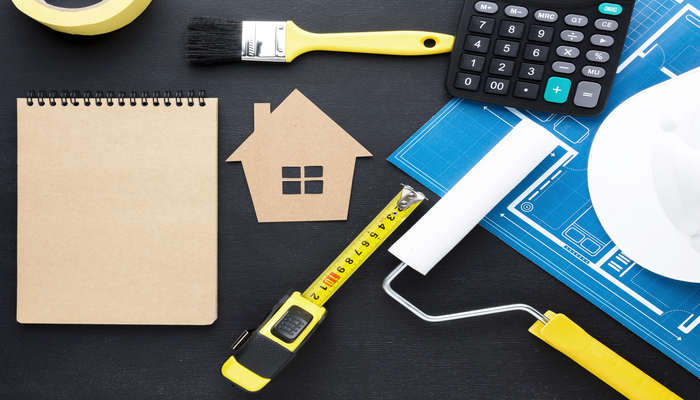ADVERTISEMENT
Home improvement loans are a great way to make your renovation dreams a reality. If you’re looking to upgrade your kitchen or refresh your living space, these loans can provide the necessary funds to transform your home into a more comfortable and valuable place.
One of the best features of home improvement loans is their flexibility, allowing you to use the funds for a variety of projects. Whether it’s a small update or a major renovation, these loans can help you invest in your property without stretching your budget too thin.
ADVERTISEMENT
Want to know how to maximize the benefits of these loans? Keep reading to discover smart renovation strategies and tips for choosing projects that fit your financial goals.
Financial Flexibility: The Essence of Retirement Loans
A key aspect of home improvement loans is the flexibility they offer homeowners. Unlike other types of loans, these loans generally allow homeowners to utilize the money for a wide variety of purposes related to home improvement.
ADVERTISEMENT
This flexibility is particularly crucial during retirement when many individuals seek ways to optimize their finances and enhance their living spaces.
This flexibility translates into more than just the ability to make aesthetic upgrades; it enables homeowners to address structural, energy, and functional issues that can impact their comfort and well-being in the long term.
By having access to funds, retirees can ensure that their homes are safe, efficient, and aligned with their lifestyles.
Expanding the Possibilities: Versatile Uses of Funds
Home improvement loans allow homeowners to undertake everything from small upgrades to large-scale renovation projects. The possibilities are vast and can include:
Small Upgrades
Small investments can make a significant difference in the comfort and functionality of a home. Here are a few ideas:
- Replacing Appliances: Older appliances not only consume more energy but can also diminish the overall efficiency of the home. With a home improvement loan, homeowners can invest in energy-efficient appliances, reducing utility bills;
- Aesthetic Changes: Simple updates, such as repainting walls or changing light fixtures, can revitalize a space and make it feel more welcoming. While these changes may be minor, they can have a considerable impact on the overall feel of the home.
Major Renovations
Larger projects tend to offer a greater return on investment. Some options include:
- Kitchen and Bathroom Remodels: These areas are critical for increasing home value. Modern kitchens and updated bathrooms not only create a more enjoyable living space but also attract potential buyers when the home is on the market;
- Structural Improvements: This can include adding rooms, building decks, or upgrading outdoor spaces, which not only enhance functionality but also improve the overall aesthetic of the property.
Financial Benefits: Competitive Interest Rates and Possible Tax Incentives
In addition to flexibility, home improvement loans offer significant financial advantages. These include competitive interest rates and, in some cases, tax benefits, making the total cost of renovations more affordable.
Competitive Interest Rates
- Reduced Cost of Capital: Compared to credit cards or personal loans, home improvement loans typically come with lower interest rates, making them a more economical financing option for renovations;
- Lower Monthly Payments: With lower interest rates, homeowners can manage their monthly payments more effectively, freeing up cash flow for other expenses.
Tax Benefits
- Interest Deduction: In some cases, the interest paid on home improvement loans may be tax-deductible, providing additional financial relief. This can be particularly advantageous for homeowners seeking ways to reduce their tax burden;
- Professional Consultation: It’s advisable to consult a tax professional to fully understand the specific tax implications associated with these loans and how they apply to each homeowner’s individual situation.
Financial Responsibility: Assessing Repayment Capacity and Loan Terms
It is important for homeowners to act responsibly when considering a home improvement loan. Before taking on any type of financing, it is crucial to:
Assess Repayment Capacity
- Budgeting: Calculate monthly income and expenses to determine how much can be allocated to loan repayment without compromising essential needs.
- Future Financial Plans: Consider how other financial goals, such as saving for retirement or education funds, may impact the ability to repay the loan.
Understand Loan Terms
- Interest Rates and Fees: Familiarize yourself with all costs associated with the loan, including potential fees for early repayment or other charges that could affect the total cost.
- Loan Duration: Evaluate the length of the loan and how it aligns with your financial goals. A shorter loan term may mean higher monthly payments but less overall interest paid.
Strategic Planning: Maximizing the Value of Improvements
Homeowners should carefully plan their renovations to prioritize upgrades that offer the best return on investment and significantly improve the value of the home. This requires a thorough analysis of property needs, as well as an understanding of current real estate market trends and buyer preferences.
Focus on High-Impact Areas
Projects that modernize living spaces, such as kitchens and bathrooms, tend to generate a solid return, as they are areas of high interest to future buyers.
- Kitchen Upgrades: Investing in modern appliances, countertops, and cabinetry can enhance both functionality and appeal, making it a worthwhile investment;
- Bathroom Renovations: Updating fixtures and finishes can turn an outdated bathroom into a luxurious retreat, increasing overall home value.
Consider Energy Efficiency
Improvements that increase energy efficiency, such as installing proper insulation and upgrading HVAC systems, not only add value to the home but can also result in significant long-term savings on energy costs.
Prudent Execution: Managing Financial Resources and Expectations
In addition to planning, it is essential to closely manage financial resources during the execution of renovations. This ensures that funds are used efficiently and effectively.
Budget Management
- Material Costs: Keep a detailed record of material expenses, hiring labor, and any additional costs that may arise during the renovation process;
- Regular Comparison: Compare actual expenses with the initial budget to identify potential deviations and take corrective measures promptly.
Contingency Planning
Being prepared for financial contingencies is crucial. Set aside a margin for unexpected repairs or changes in project scope.
By taking a proactive approach to financial management, homeowners can avoid unpleasant surprises and ensure that money is allocated wisely, maximizing the return on investment in their home renovations.
Achievement of Goals: Enjoying the Fruits of Investment
Upon completing renovations, homeowners can enjoy the benefits of a home that meets their needs and reflects their lifestyle. A renovated home not only provides a more functional and comfortable environment but can also create a space that inspires and promotes a sense of well-being.
- Increased Home Value: A renovated house often attracts more attention in the real estate market, increasing its chances of selling quickly and at a higher price if the homeowner decides to sell in the future. This appreciation of the property not only represents a return on financial investment but also reflects the emotional investment and care dedicated to transforming the space into a truly welcoming and satisfying home.
Endless Opportunities for Residential Transformation
In summary, home improvement loans provide a valuable opportunity for homeowners to transform their homes, offering financial flexibility and opening doors to a variety of improvements that can elevate the comfort, functionality, and value of their properties.
By leveraging these loans effectively, retirees can enhance their living spaces, enjoy a higher quality of life, and secure a wise financial future.





